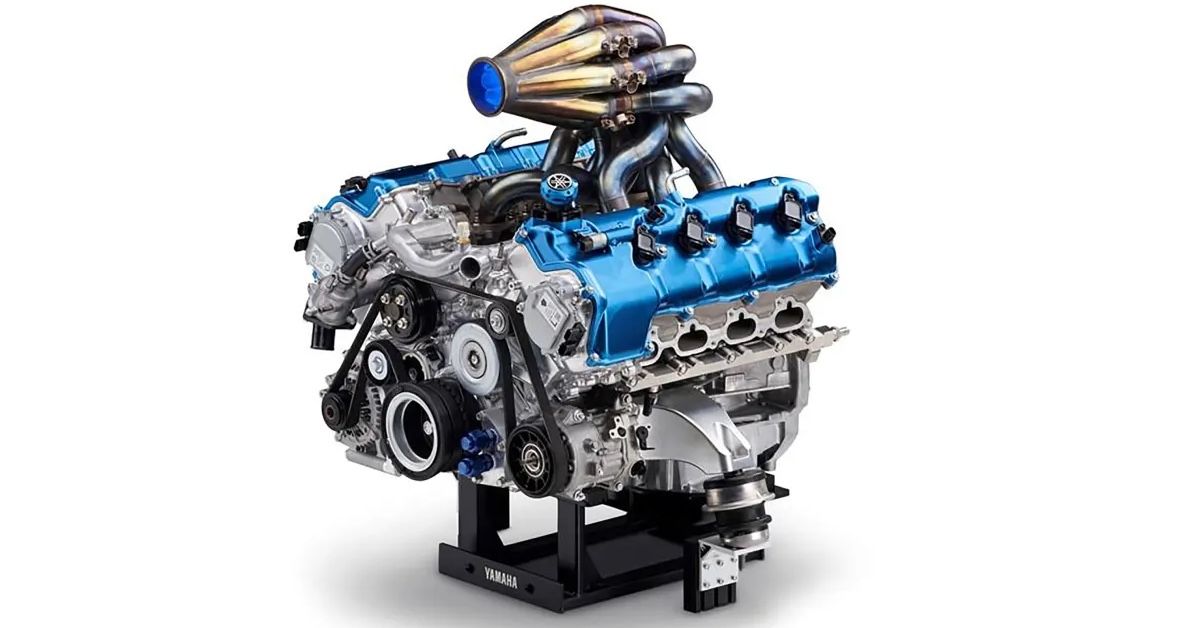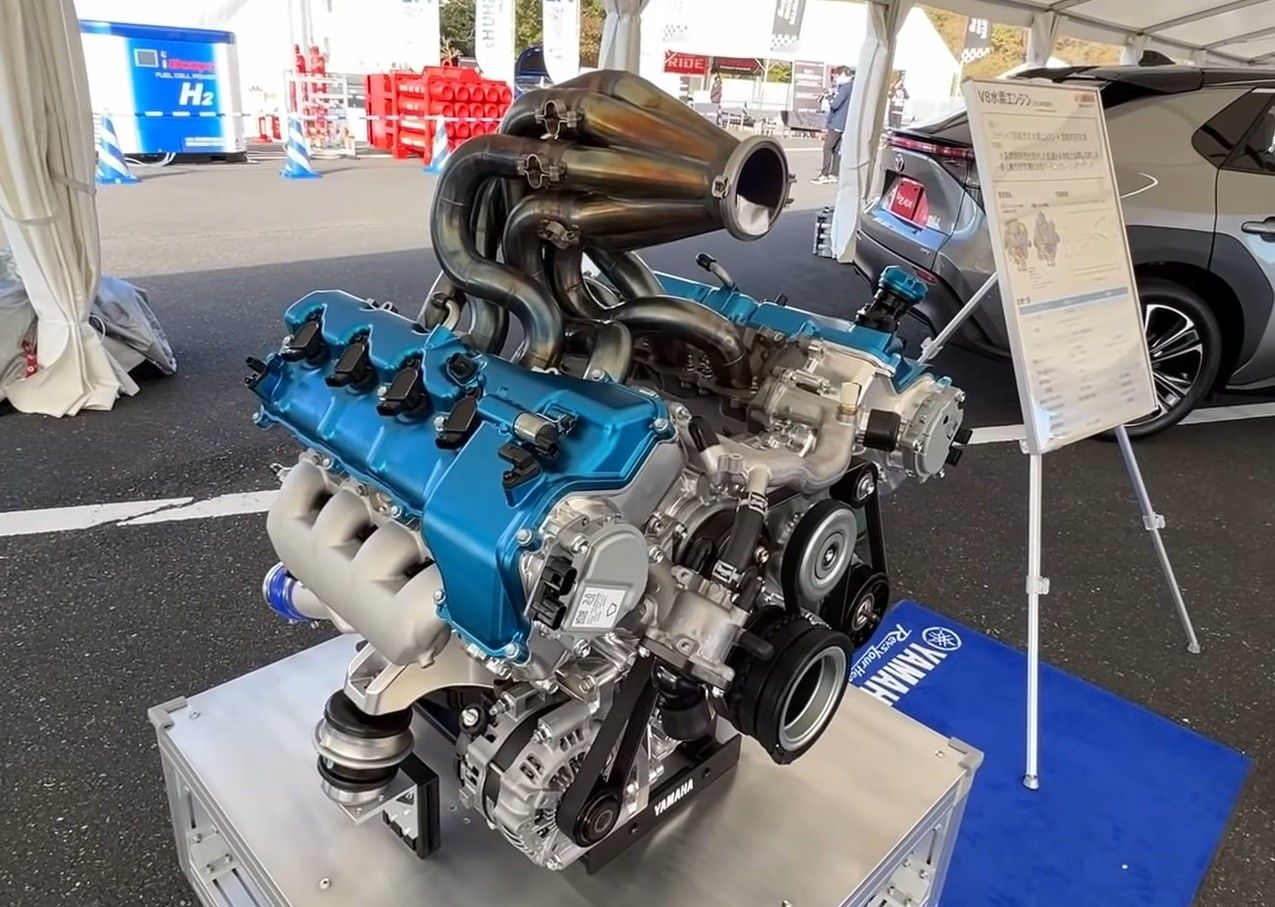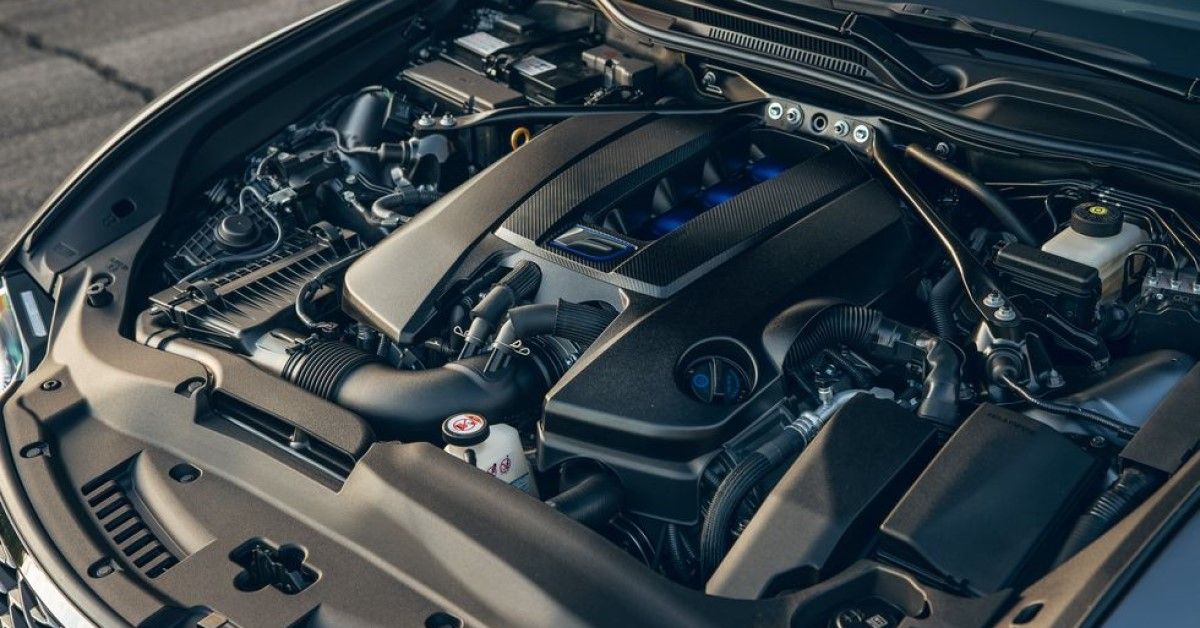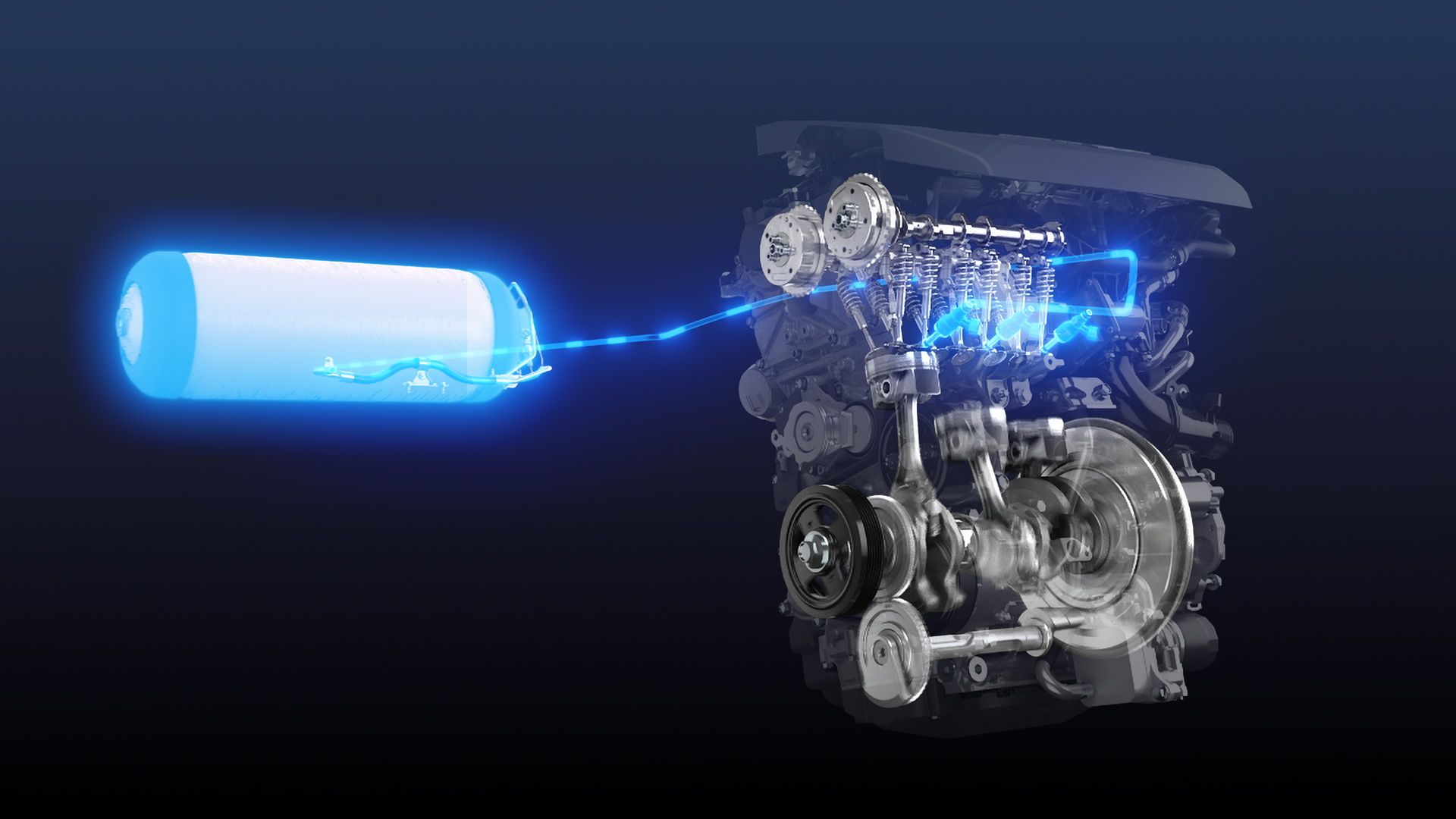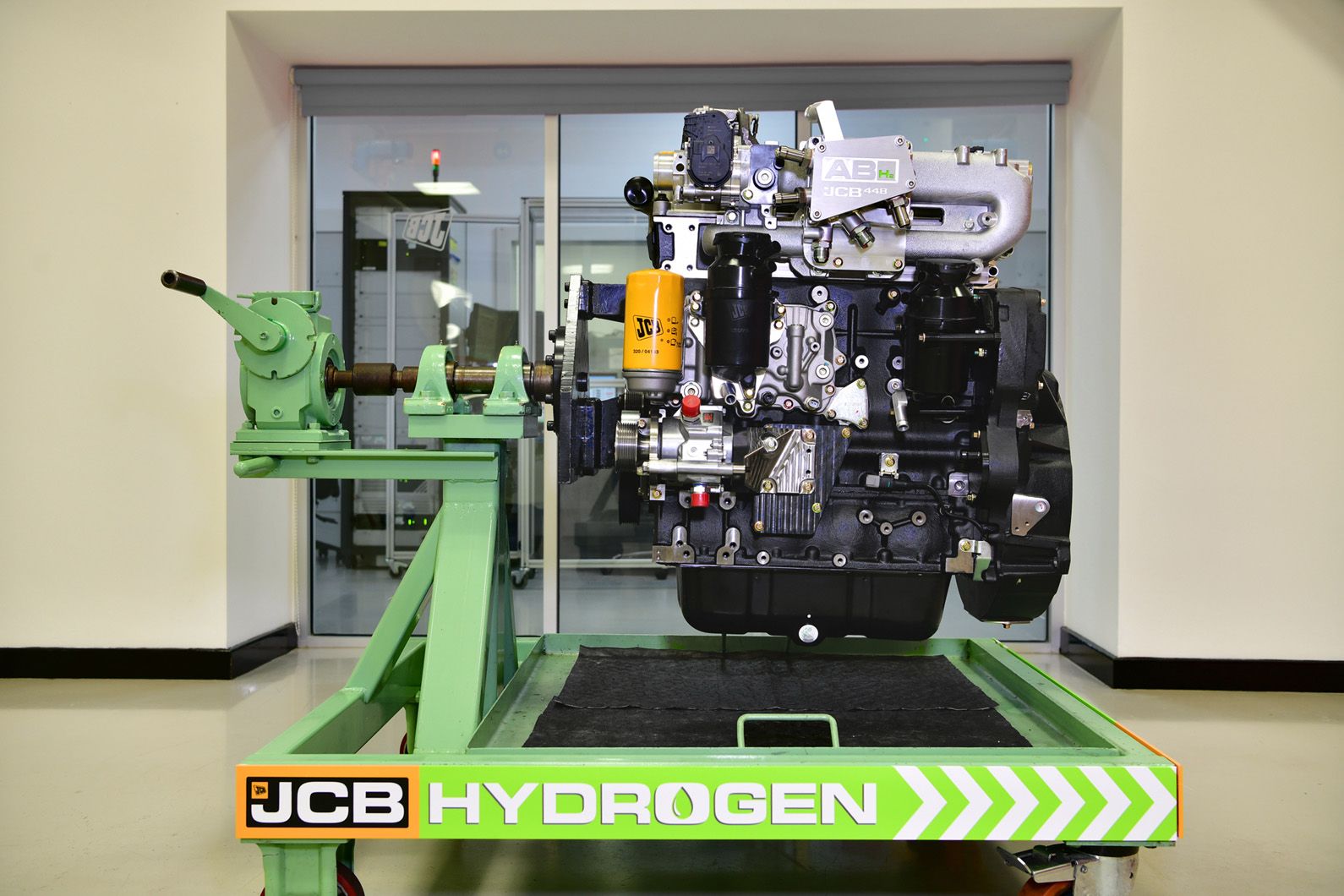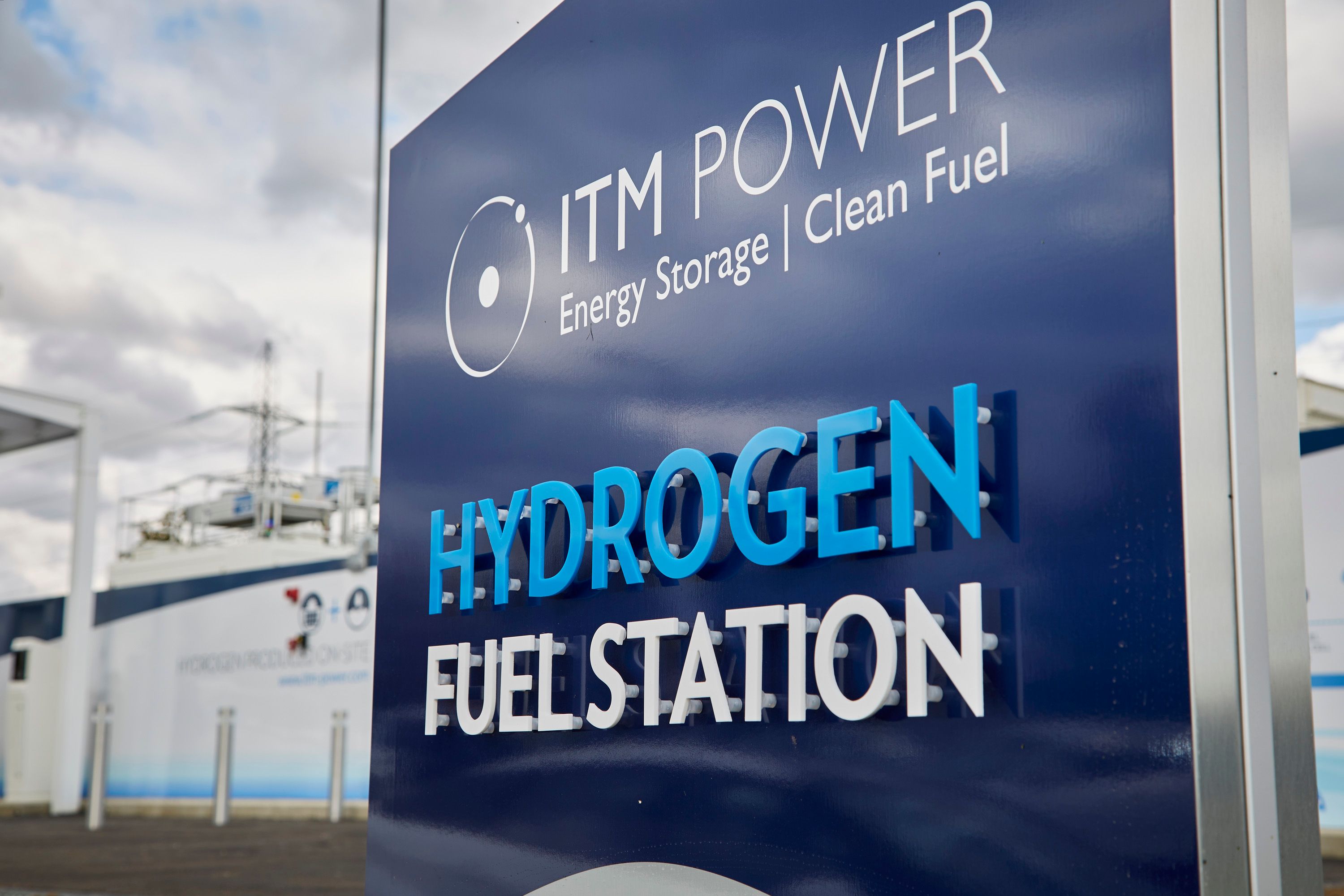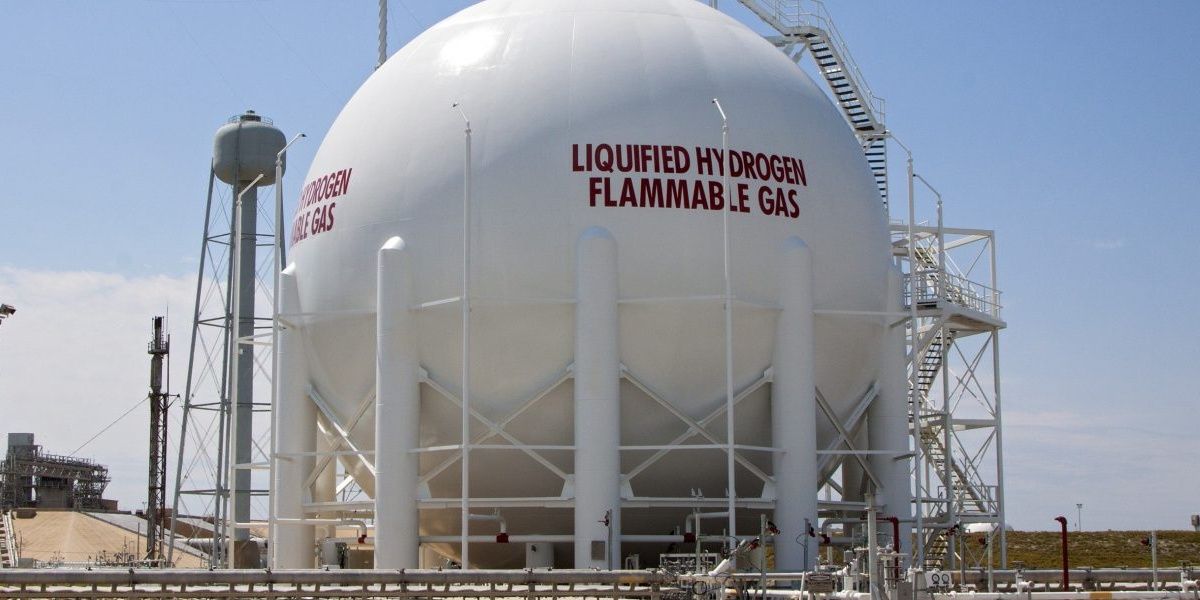While combustion engines have a soft spot among enthusiasts, that emotion hasn’t quite translated well into other groups of people. We’re at a point where internal combustion engines are facing intense scrutiny from regulatory agencies. Witnessing a slow but steady phaseout.
It’s not like the IC engine is dead. Oh no, not yet. You still have high-capacity fuel chugging engines that power everything from commercial airlines to lawnmowers. It's just that their days are numbered.
California, very recently, passed a law banning gas-powered lawnmowers. Several other movements across the globe are urging carmakers to switch from fossil fuels to other sustainable alternatives.
Amidst all this, we have good news, courtesy of Japan. Toyota has partnered with Yamaha in a quest to unravel the possibilities of hydrogen mobility. We’ve seen this happen in the past, with fuel cell EVs being sold, albeit quietly, alongside their electric-only counterparts.
Well, this move is very different. A move that makes the enthusiast in us all giddy and excited.
We’re talking about a hydrogen-powered internal combustion engine. And it’s no itty-bitty four-banger. The engine in question is a 5.0-liter V8. Here’s more about it.
Hydrogen Internal Combustion Engine: Toyota And Yamaha Are Partnering Once Again
Remember the Lexus LFA? Toyota’s flagship supercar had a 4.8-liter naturally aspirated high-revving V10 co-developed with Yamaha. The latter was heavily involved in tuning the car’s acoustics, giving the V10 its signature exhaust note.
Fast-forward to today, and they are partnering yet again to make hydrogen-fueled combustion engines. Interestingly, Yamaha said the 5.0-liter V8 engine will be based on the one used in the Lexus RC F. During testing, Yamaha managed to squeeze out 450 horsepower and 398 lb-ft of torque from the hydrogen engine; figures that are very close to the gas-powered Lexus coupe. This comes courtesy of modified cylinder heads, injectors, intake manifolds, and several other components.
A spokesperson from Yamaha’s R&D had positive things to say about the engine. The powerplant has easy-to-use performance characteristics and happens to be quite vocal too. The hydrogen V8’s top-mounted eight-into-one manifold is said to give off a harmonic high-frequency exhaust note. It may not surpass the aural drama of Yamaha’s V10 masterpiece, but we are certain the team will not disappoint.
Hydrogen ICE: There Are Other Players
Burning hydrogen in a combustion engine instead of gasoline or diesel isn't a new idea. BMW once produced the Hydrogen 7, a version of its 7 Series flagship with a hydrogen-powered V-12 combustion engine.
Chinese automaker GAC also recently announced that it's testing a hydrogen combustion engine, although it's unclear if the engine will reach production. Yamaha is also partnering with Kawasaki in joint research on hydrogen combustion engines for two-wheeled and four-wheeled applications.
Joseph Cyril Bamford (JCB), a key player in heavy-duty machinery, has developed a hydrogen-powered internal combustion engine as a zero-emission alternative to EVs and fuel cells.
Currently, JCBs operate using diesel. By modifying the engine slightly, the engineers were able to run it using hydrogen. The modification, as pointed out by Chief Engineer John McCarthy, involve changes done to the cylinder heads. This was implemented mainly to accommodate the transition to Spark Ignition from Compression Ignition.
Also, significant engineering was done in the emissions department. One of the inherent disadvantages of a hydrogen ICE is the production of various oxides of Nitrogen or NOX. Engineers found a clever way to circumvent this by running the engine lean, and it worked.
Hydrogen ICE: Hurdles Are Aplenty
As good as it sounds, hydrogen is yet to be a practical solution. Primarily because hydrogen propulsion is very much in its infancy. On top of that, EVs are becoming a trend, and more government incentives favor electricity than hydrogen. Which means widespread adoption could still take time.
Plus, hydrogen fuel stations are not as popular as charging points. In fact, California is the only place in North America where hydrogen-powered vehicles can be practical. Out of the 39 odd hydrogen stations across the country, 35 are located in California. Then there is the problem of storage and transportation. The costs, at least now, are not worth taking the effort.
As you can tell, employing the idea has its fair share of issues. That said, hydrogen engines can be a viable solution once the initial hurdles are done with.
From a consumer standpoint, EVs are generally on the expensive side of the spectrum. Batteries use rare-earth minerals, and the availability will only go down as time progresses, leading to an increase in cost.
Not only will a hydrogen engined car be emissions-free, but its price will likely slot between an EV and a gasoline car, making it an excellent alternative. Provided the concept gets enough traction.
Sources: CNBC, Top Gear, Carthrottle

